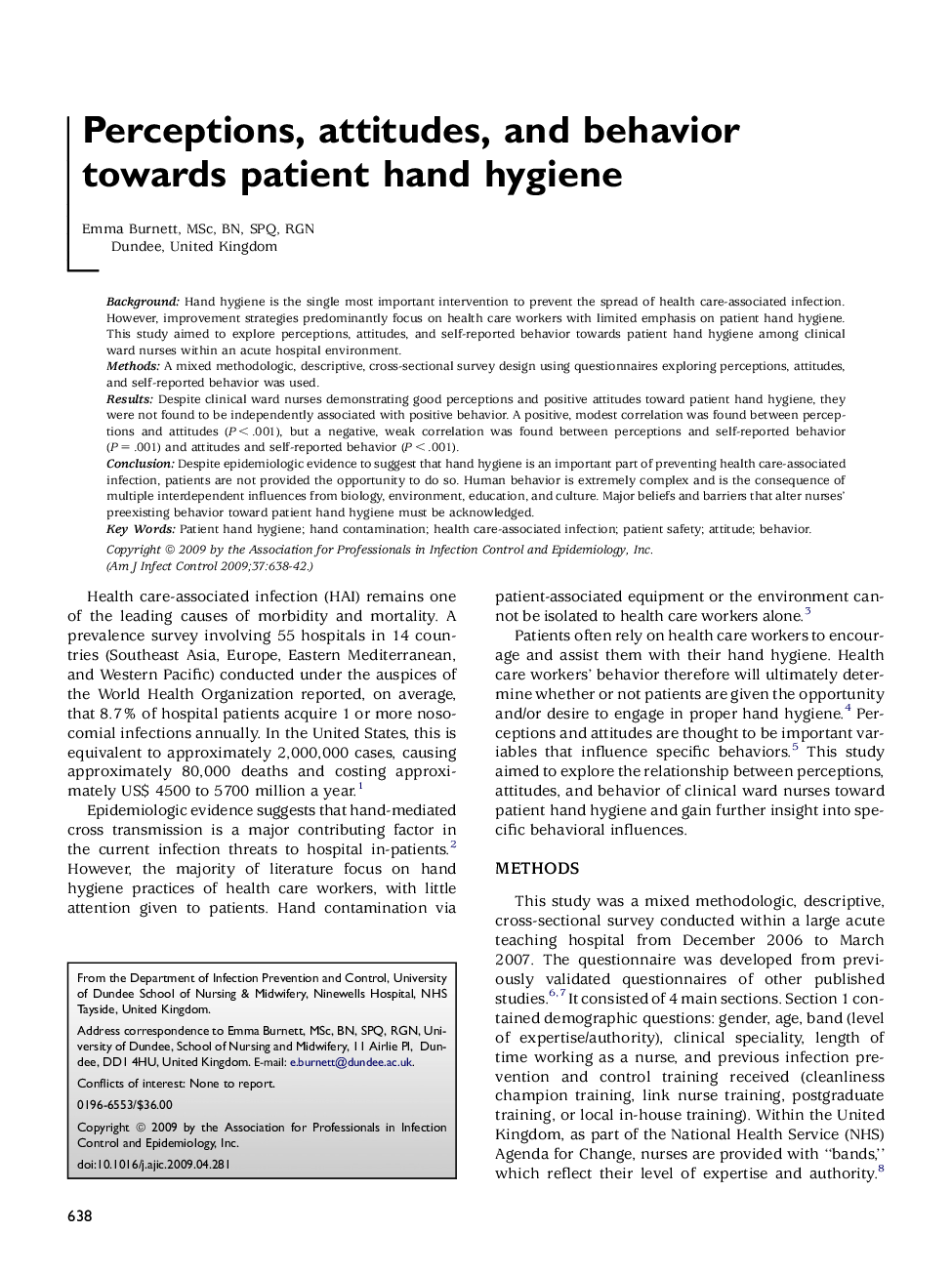| Article ID | Journal | Published Year | Pages | File Type |
|---|---|---|---|---|
| 2638450 | American Journal of Infection Control | 2009 | 5 Pages |
BackgroundHand hygiene is the single most important intervention to prevent the spread of health care-associated infection. However, improvement strategies predominantly focus on health care workers with limited emphasis on patient hand hygiene. This study aimed to explore perceptions, attitudes, and self-reported behavior towards patient hand hygiene among clinical ward nurses within an acute hospital environment.MethodsA mixed methodologic, descriptive, cross-sectional survey design using questionnaires exploring perceptions, attitudes, and self-reported behavior was used.ResultsDespite clinical ward nurses demonstrating good perceptions and positive attitudes toward patient hand hygiene, they were not found to be independently associated with positive behavior. A positive, modest correlation was found between perceptions and attitudes (P < .001), but a negative, weak correlation was found between perceptions and self-reported behavior (P = .001) and attitudes and self-reported behavior (P < .001).ConclusionDespite epidemiologic evidence to suggest that hand hygiene is an important part of preventing health care-associated infection, patients are not provided the opportunity to do so. Human behavior is extremely complex and is the consequence of multiple interdependent influences from biology, environment, education, and culture. Major beliefs and barriers that alter nurses' preexisting behavior toward patient hand hygiene must be acknowledged.
